Are you drinking enough water?
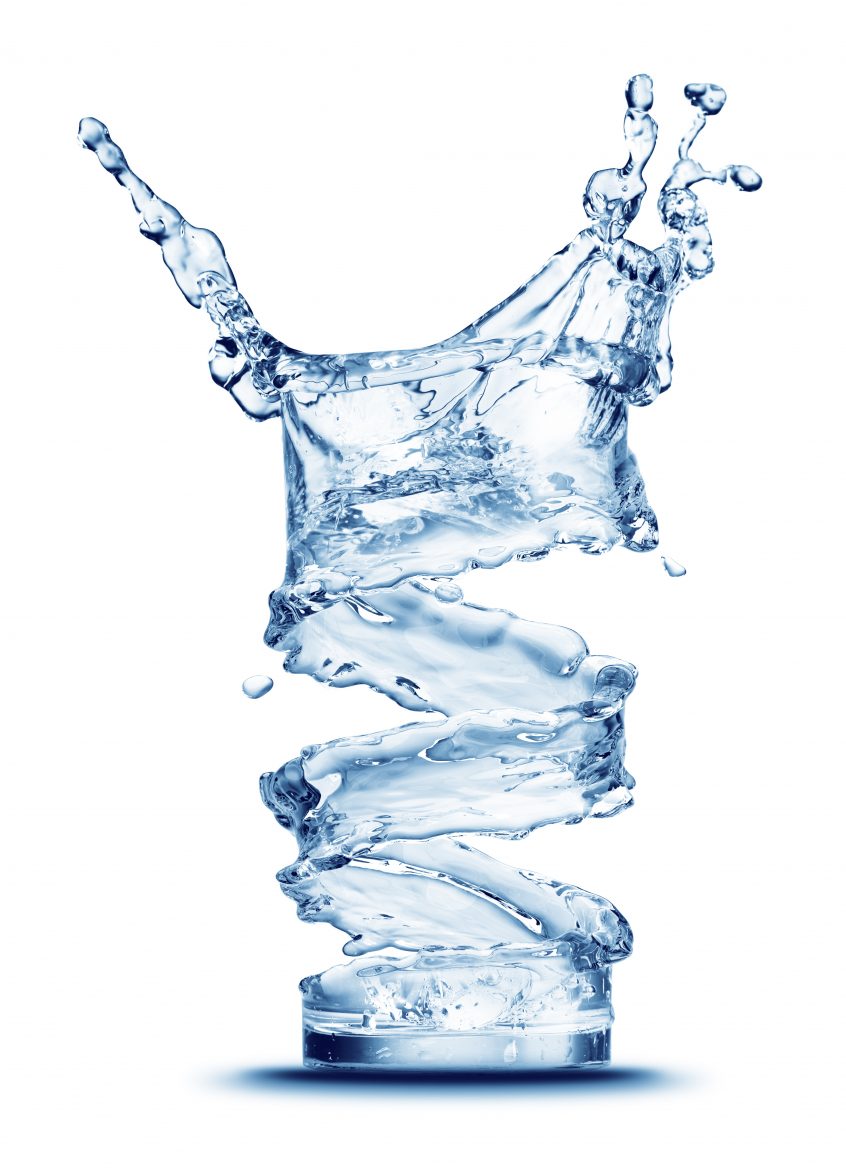
We all know (I hope) that drinking enough water is important for our general health but for some reason we regularly don’t drink enough.
60-70% of the human body, including our brain, is water so it makes sense that we need to keep ourselves hydrated.
Confused as to how much water to drink?
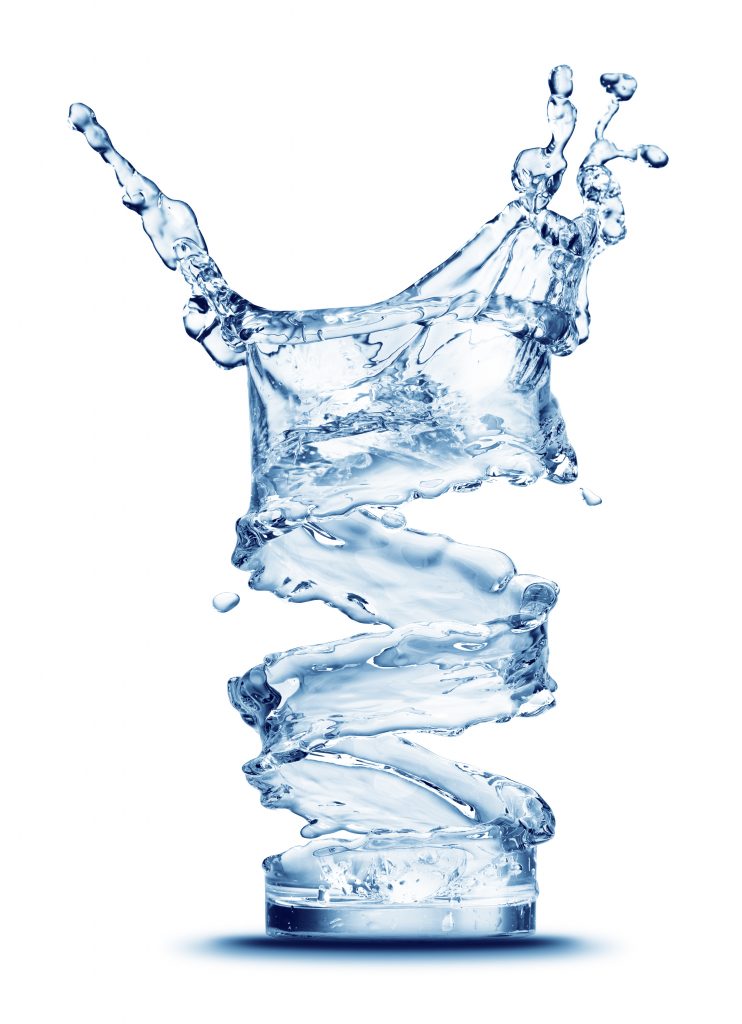
The current advice is to drink a minimum of 8-10 glasses of water a day (around 2 litres for women and 2.5L for men). However, the amount we need to drink will also depend upon other factors such as what we eat, the weather and how active we are on that day. It makes sense that if we are exercising in warm weather, we will need more water intake than if we are sitting at our desk on a cool day.
Top Tip 1:
Rather than focus on exact amounts to drink- a general rule is to ensure that your urine always stays pale yellow in colour.
So, just how many of us drink enough water daily?
According to the RNLI (2016), a staggering 86% os us in Wales do not drink enough water (maybe it’s because we have so much rain- it puts us off!) Other highlights from this study, suggest that UK women are better than men, with 20% of men drinking no water at all during the day. Age is also a significant factor in hydration levels, with around a quarter (25%) of those over 55 stating they drink no water during the day compared with just 7% of people aged 25-34.
A persons’ overall risk of dehydration increases with age due to the natural loss of ones’ sense of thirst and exacerbated by taking medications that promote fluid loss. The risk is even greater for those who suffer with Dementia as they have the added issue of simply forgetting to drink. I love the idea of these hydrating Jelly Drops, specifically designed to assist Dementia sufferers.

The good news is that what we eat will also have an impact upon our levels of hydration. Eating lots of fresh fruits and vegetables will help us to take water on board. Those with high water content (as well as providing you with other health benefits) include, lettuce, cucumber, celery, strawberries, peach, and both watermelon and cantaloupe melons.
So how does dehydration makes us feel?
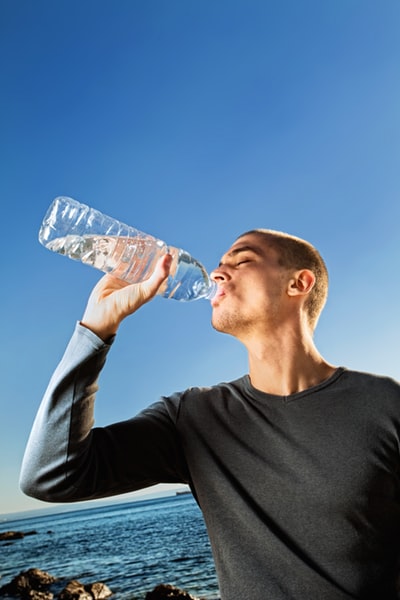
Symptoms of dehydration are wide ranging and it’s not just about having a dry mouth, feeling thirsty of having dark urine. If you feel thirsty then you are already dehydrated. Other symptoms can be dry skin, fatigue/malaise (loss of energy), irritability, headache, poorer co-ordination and reaction time and reduced concentration/attention. It can progress to feelings of light headedness and even dizziness is out blood pressure is affected. Dehydration can also include the viscosity (stickiness so to speak) of our blood and requires our heart to work harder. There is evidence to suggest that dehydration could contribute towards cardiovascular events (heart attacks and stroke). Most of you will have seen the popular post circulating social media, about drinking water before bed to reduce your risk of having a morning heart attack. This is a myth and does not have any robust scientific backing.
Companies and businesses, including the NHS, are coming to realise just how chronic dehydration can impact upon the productivity of its workforce. This can be a problem in over heated and air-conditioned offices. Information posters encouraging water ingestion throughout the working day and the provision of on-site water dispensers for staff are now, thankfully, becoming more widespread.
Top Tip 2:
If you work in an office or large business, print the poster off above and display it to try and encourage everyone to stay hydrated during the day.
Top Tip 3:
We often confuse hunger and thirst signals. You may think you are hungry when in fact you are dehydrated. So, always drink a glass of water first. having a glass of water before and during your meal will help your digestion and managed you appetite and calorie intake.
So how can we drink more water?
We are so fortunate in the UK that we have high quality tap water for drinking. Despite this, drinking tap, filtered, or even naturally sourced bottle water, does not come easy for some people. So, to make it more interesting, why not add a squeeze of natural fruit juice (or low sugar cordial) or even add whole fruit and herbs. You get an extra shot of vitamins too. The combinations are endless. Why not try lemon and ginger or watermelon and kiwi?
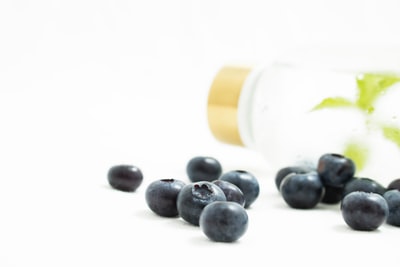
There are some great infusion water bottles to choose from but look out for those that are BPA (Bisphenol A) free, durable and with a good trip. You want your bottle to last and last!
For those of you that prefer your water more au naturele, then there is again a huge array of reusable water bottles to keep your water perfectly chilled and oh so stylish! These are a brilliant investment but please do try and go with an eco-friendly brand. These tick the boxes for both health but also reducing single use plastic waste. However, they are only full effective when individuals have good access to water refill them. Check out this app which you can download to find free water refill stations near you https://refill.org.uk/get-the-refill-app/

If there are no easily accessible water refill facilities, then we can’t chastise individuals for purchasing naturally sourced bottled water, especially as most distributors now use recycled and recyclable plastic. Research by NaturalSourceWaters.org.uk would suggest that individuals will either choose to buy a soft drink (even knowing it is less healthy), or will go without a needed drink all together, if there is no bottled water available to purchase. They would do this rather than trying to find a water fountain or refill station. As the healthiest choice when it comes to staying hydrated, water should always be available to purchase next to other soft drinks on the shelf and in the chiller. This is especially pertinent at a time when obesity levels and tooth decay are on the rise, and we really need to be encouraging less consumption of soft drinks, especially amongst children.
Top Tip 4:
Always carry a refillable water bottle with you.
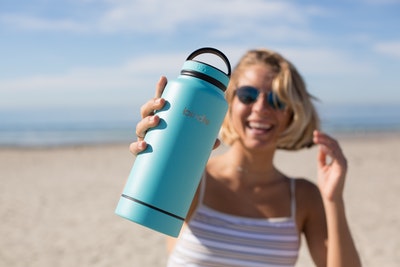
If you have time, and you prefer hot drinks, then make yourself a decaffeinated herbal tea instead (many of which have other health benefits too). Perhaps a cup of hot water with fresh lemon and/or ginger tickles your taste buds?
Although decaffeinated drinks are best, drinks containing caffeine DO still add to your overall water intake. Caffeine does have a mild diuretic effect, meaning it will cause you to urinate and thus lose hydration. However, if you limit the amount of caffeine you drink then it won’t cause fluid loss in excess of the volume ingested. However, be careful with such beverages as they often come with added sugar and milk!
Top Tip 5:
Alcohol is also a diuretic.
When you are out drinking or having a meal, ask for a glass or jug of water. Try and match each glass of booze with a glass of water. You will be grateful for this the next day!

If you are someone that just drinks tea, coffee and fizzy drinks, then a good way of trying to change this habit is by replacing just one of these drinks with pure water. Once this behaviour has become established then try replacing another, and so on. Remember, our children model many of our behaviours so we need to lead by example if we want to encourage them to establish a healthy lifestyle. Some of the ideas above, apply equally well to children including personalised water bottles.
Top Tip 6:
Try and establish a routine of drinking water first thing in the morning. This sets you up for the day. Then drink regularly throughout the day. The idea is not to have your daily intake in one go!
Tracking the amount of water you drink a day has never been easier. An added benefit of using a refillable water bottle of a known volume, means that you remain aware of how much you need to drink throughout the day. For those of you that are more tech savvy- there are now numerous apps that you can download to your phone https://www.healthline.com/health/hydration-top-iphone-android-apps-drinking-water





